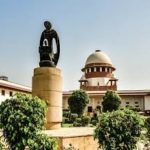Suit No. 1758 of 2003: Filed by individuals and ISKCON Bangalore (as the 6th plaintiff) seeking declarations concerning the legitimate governing body of ISKCON Bangalore and injunctions against interference with its management. The Trial Court dismissed this suit in 2009, a decision later upheld by the High Court.
Suit No. 7934 of 2001: Filed by ISKCON Bangalore asserting its absolute ownership of properties in Bangalore5. ISKCON Mumbai filed a counter-claim. The Trial Court initially ruled in favour of ISKCON Bangalore, declaring it the absolute owner and granting an injunction. However, the High Court subsequently reversed this decision, allowing ISKCON Mumbai’s counter-claim.
Amidst the litigation, a committee chaired by a retired Supreme Court Justice was appointed in 2011 to oversee the temple’s management and properties.
Law Involved
The core legal issues revolved around property law, specifically questions of ownership and title to immovable properties, and the governance and management of registered societies under relevant Acts like the Societies Registration Act and the Maharashtra Public Trusts Act (for ISKCON Mumbai) and the Karnataka Societies Registration Act (for ISKCON Bangalore). The case also involved the interpretation of documents, minutes of meetings, and evidence of alleged manipulations related to the internal affairs of the societies8….
Reasoning
The Supreme Court meticulously reviewed the evidence and findings from both the Trial Court and the High Court.
For Suit No. 1758 of 2003, the Court upheld the High Court’s dismissal, which affirmed the Trial Court’s finding that the plaintiffs (including ISKCON Bangalore) failed to prove their claims regarding the composition of the governing body.
For Suit No. 7934 of 2001, the central conflict was the ownership of the Bangalore properties. ISKCON Mumbai contended that the Bangalore activities were an offshoot of their society, the property was acquired for them, and alleged fraud in the documentation supporting ISKCON Bangalore’s claims. They highlighted High Court findings that ISKCON Bangalore was “defunct” and that its seal was manipulated. Conversely, ISKCON Bangalore maintained its independent legal status and ownership.
The Supreme Court found that the High Court’s decision to reverse the Trial Court’s decree in Suit No. 7934 of 2001 was erroneous. By choosing to restore the original Trial Court judgment that declared ISKCON Bangalore as the absolute owner, the Supreme Court implicitly found the evidence supporting ISKCON Bangalore’s ownership and distinct legal entity more compelling, effectively rejecting the claims of manipulation and illegitimacy raised by ISKCON Mumbai concerning property title. The court observed that the dispute had been ongoing for over two decades.
Holding The Supreme Court delivered a multi-part judgment:
The Civil Appeals stemming from the dismissal of Suit No. 1758 of 2003 are dismissed, upholding the High Court’s decision that the appellants failed to prove their claims regarding the governing body [54, 73(a)].
The Civil Appeal against the High Court’s judgment in RFA No.421 of 2009 (which had favoured ISKCON Mumbai’s counter-claim on property ownership) is allowed [54, 73(b)].
Crucially, the original judgment and decree dated 17th April 2009 by the City Civil Court, Bangalore, in Suit No. 7934 of 2001, is restored. This means that ISKCON Bangalore is affirmed as the absolute owner of the disputed properties [55, 73(c)].
The committee previously headed by Hon’ble Mr. Justice R.V. Raveendran, which was overseeing the temple management, is dissolved [55, 73(d)].
Prasannatma Das V. K.N. Haridasan Nambiar (Dead) And Others
Supreme Court: 2025 INSC 717: (DoJ 16-05-2025)






